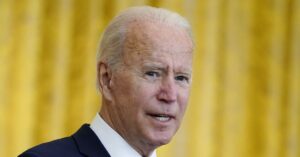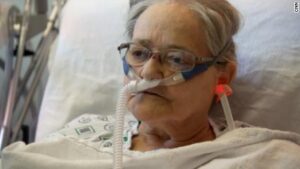After reaching the pinnacle of his sport on an international stage, Charley Nordin could have reflected on his remarkable journey, which began with a debilitating injury and resulted in a silver medal.
But Nordin, 24, had something else on his mind. His message was printed in white letters on a black T-shirt as Nordin pulled back his warmup jacket on the medal stand at the 2020 Tokyo Paralympic Games:
“Justice for Oscar Grant.”
Nordin’s co-ed rowing crew finished behind only Great Britain in the mixed coxed four on Aug. 28. He used the medal stand as a platform for his social conscience over Grant’s shooting death at the hands of a BART police officer at Fruitvale Station in 2009. Johannes Mehserle was convicted of involuntary manslaughter and served 11 months. In January, the Alameda County District Attorney’s office declined to press charges against another officer allegedly involved in the case.
Nordin considers Grant’s death and its aftermath as a seminal time in his young life.
“I was 12 years old and it kind of shattered my world,” Nordin said in a recent phone interview. “The justice system is not just and does not hold police accountable. Oscar Grant was murdered. It hit so close to home. Growing up I was like a five-minute drive from Fruitvale Station. I wanted to represent back home and show people that I’m representing Oakland and that I love Oakland.”
Noting that “rowing is such a white sport, there’s so little diversity,” Nordin, who himself is white, was gratified there was little to no pushback for wearing his shirt on the medal stand. USRowing CEO Amanda Kraus issued support in the form of a statement to Rowing News.
“We’re incredibly proud of Charley Nordin and the rest of his crew that captured the silver medal yesterday at the Tokyo Paralympics,” Kraus said. “Charley used the medal ceremony as an opportunity to express his views and USRowing stands fully behind his right to protest just as we support all of our athletes’ freedom of expression.”
A group called “Rowing in Color,” which Nordin said highlights “black and brown rowers” also reached out in support.
“They were really encouraged and touched by the celebration, and that was good to see,” Nordin said.
That Nordin is competing at all is remarkable given an unthinkable trauma while a junior at Bishop O’Dowd High School which changed his life forever. While hiking with friends, Nordin tried to use a rope swing to splash into a body of water. The rope snapped.
“It broke before I was out over the water and I fell about 40 feet and essentially shattered my L3, L4 and L5 vertebra,” Nordin said. “For the longest time, there was so much swelling in my spine I couldn’t move my legs much at all. For more than a year, it was a matter of trying to regain some sort of strength, some sort of independence.”
A distance runner at O’Dowd in cross country and track, Nordin had designs on running in college. Rowing essentially came out of nowhere courtesy of Mark Voorhees, a coach at Gonzaga University. While at freshman orientation, Voorhees sought out Nordin simply because he was tall and figured he had the potential for rowing.
Why? Because Voorhees is 6-foot-9 and Nordin is 6-8. Height, Nordin said, means “bigger levers to work with” and a longer stroke.
“I’m also a pretty tall dude and the coaches 20 years ago stopped me at orientation and said, ‘Hey, ever heard of rowing?’” Voorhees said. “It was history repeating itself at that point. At 6-8, he stood out from the crowd. Here’s this big athletic-looking guy. At a lot of schools, that’s how rowing careers start.”
When Nordin told him of the injury and the condition of his back, Voorhees was undeterred.
“When your technique is really strong, there’s not a lot of impact on your back,” Voorhees said. “I thought it could be a pretty useful part of his rehab, just keeping his functionality high and his activity high.”
Buoyed by the chance to compete with able-bodied teammates, Nordin slowly got better and stayed with it for four years.
“I was just kind of one of the guys and just another member of the team,” Nordin said. “It challenged me and it forced me not to make any excuses and it was great for me both mentally and physically.”
Not that there weren’t some waves along with the ripples in the water. Nordin had to go from merely participating to actually competing.
“It took him a good two and a half to three years out of the four years he was here to get to a place where he was really going hard,” Voorhees said. “He had to mature a lot. I think it’s really hard for anybody in that situation to go from projecting your future as one thing and then have a traumatic event where you’ve got to define what your future will actually be.”
Nordin said he stumbled upon the Paralympics while watching rowing racing videos.
“I’ve tried to lead my life in a way that I’m not disabled, it doesn’t inhibit me,” Nordin said. “I don’t want to put restrictions on myself. But para-rowing looked kind of cool. I looked into it and found one of the qualifications was serious muscle impairment due to traumatic injury. I had this lightbulb moment where I was like, ‘Hey, that’s me.’ ”
What followed was a tryout camp which led to Nordin earning a spot on the mixed cox four team at the World Championships in Bulgaria, where he was part of a silver-medal winning team. Then came Tokyo.
After graduating from Gonzaga, Nordin is at a graduate program at Trinity College in Dublin, Ireland. Still mindful of social justice, he is in a Comparative Social Change program. He’ll participate on the Trinity rowing team with an eye toward the Paris Paralympics in 2024 and the possibility of gold instead of silver — and perhaps another opportunity to push for social change.



















